 Piwik is the Free and Open Source Analytics project, like Google Analytics but a whole lot less creepy. On 9th January 2018 Piwik was renamed Matomo, and on 12th January Innocraft.Cloud switched from Piwik to Matomo branding on their site/services and announced the change to their customers. Piwik has been around for over 10 years, so changing the brand name is a big step: I did a little digging and can shed some light on why this change has happened and how it highlights a wider issue for Open Source projects in world of Branding and brand loyalty.
Piwik is the Free and Open Source Analytics project, like Google Analytics but a whole lot less creepy. On 9th January 2018 Piwik was renamed Matomo, and on 12th January Innocraft.Cloud switched from Piwik to Matomo branding on their site/services and announced the change to their customers. Piwik has been around for over 10 years, so changing the brand name is a big step: I did a little digging and can shed some light on why this change has happened and how it highlights a wider issue for Open Source projects in world of Branding and brand loyalty.
Table of Contents
Piwik and Piwik Pro
Piwik is the Open Source project and Piwik Pro was founded to provide hosting, support and development services for Piwik users: while many Open Source enthusiasts love to self-host, many SME’s don’t have the expertise/time/resources etc to go down that route.
At one time Piwik and Piwik.pro were so tightly bound their websites merged seamlessly together, with the Open Source project generating leads for the hosted version, and presumably the hosted version generating revenue to support the Open Source project. I wrote about this this in my 2015 discussion of website models for Open Source projects with a hosting component.
Sometime between 25th January 2016 and 20th February 2016, however, the two websites parted ways design wise then in May-June 2016, Matthieu Aubry, the Founder & Project lead left Piwik Pro and founded Innocraft cloud.
Between June 2016 the Piwik.org website “recommended” Piwik Pro Cloud trial and finally, from June / July 2017 they switched to offering the 30 day free trail at innocraft.cloud.
A discussion on twitter provides a hint, perhaps, of the cause of this parting of ways:
Behind @InnoCraftHQ they are the actual creator and the core maintainers of Piwik / Matomo.@PiwikPro was a try to create a company to provide professional support.
The human relations failed, so now there is 2 companies, but only one is running with the values of free / open.— tzi (@iamtzi) January 12, 2018
I don’t know “what went on”, however, having experienced the breakdown of personal relationships within an Open Source company/project myself, I expect it was a difficult, even traumatic, but ultimately liberating and productive process.
The Fallout: lost / damaged or stolen brand names
Whatever the personal cost of this separation, there was a clear legal / branding cost in that Piwik PRO retained the trademark for Piwik Pro while Matthieu retained the trademark for Piwik. This certainly has caused confusion over time, for example, emails sent to the wrong company:
This confusion had lead to clarifications being published on Piwik.org:
It doesn’t read for pleasant reading and so highlights why a change was needed in this situation.
In FLOSS, the relationship breakdown between developers and their companies often has these dramatic branding consequences, for example with OwnCloud / NextCloud or the perhaps even messier Open Office / LibreOffice debacle: this not exactly “Forking” playing out as designed by Richard Stallman.
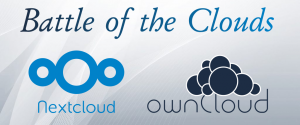 If the treasured brand name gets lost, damaged or stolen in the relationship breakdown then the core developers / community essentially become the “forkers” and pay the “reputation penalty associated with Forking” [4] while the company gets all the perks of consistent branding.
If the treasured brand name gets lost, damaged or stolen in the relationship breakdown then the core developers / community essentially become the “forkers” and pay the “reputation penalty associated with Forking” [4] while the company gets all the perks of consistent branding.
A recent and more ideal example of Forking is ThirtyBees and Prestashop: a smaller group of developers, tired of the poor performance and behavior of the larger group/brand owners, splinters off and starts work on a fork/clone the original Open Source code, publishing under a new brand name. The projects slowly diverge, and in the case of Thirty Bees, long needed improvements are distributed to the users!
The elegance of WordPress.org/.com is perhaps the ideal however, where the brand name is owned by a trust rather than an individual and derivatives are tightly controlled.
Whatever the model used, the deterioration of relations between an Open Source project/developers and their associated companies too often results in the loss / damage of brand names. This is not good for the individual project and it’s users, not the overall aims of Free and Open Source software. It’s also not in the spirit of how Open Source is designed to function.
The birth of Innocraft.cloud
 I first learned that “something was going on” in January 2017, by which point the Piwik.org website was still “recommending” Piwik.pro and Matthieu had just secured the Trademark for Innocraft [2]. I was in the early stages of setting up gingerlingdesign.co.uk and wanted to use hosted Piwik for my new business: however, my experience of Piwik.pro in the past had been disappointing.
I first learned that “something was going on” in January 2017, by which point the Piwik.org website was still “recommending” Piwik.pro and Matthieu had just secured the Trademark for Innocraft [2]. I was in the early stages of setting up gingerlingdesign.co.uk and wanted to use hosted Piwik for my new business: however, my experience of Piwik.pro in the past had been disappointing.
I filled out a help ticket on Piwik.org to discuss those issues and unexpectedly got a reply from Matthieu himself, who directed me to Innocraft.cloud and I unwittingly became one of their early customers. One year later, I am still a satisfied customer! There were a few bugs and glitches in the early days for sure, however, they were fixed promptly and communication was clear: every aspect of the service has been better than what I expirenced at piwik.pro.
The quality of Innocraft’s service shows the benefit of developers being engaged and involved in their own hosted services.
Premium features?
One aspect which is, perhaps, related to this whole process which I am not too happy about is the Premium features / paid-for-plugins approach.
I hope Open Core / neo-proprietary development is not the future development model for Piwik/Matomo. Prestashop has a similar model and it’s been a truly miserable user experience for me over the past 7 years using their software for my webstore www.ethicalpets.co.uk.
Issues with the renaming process
I think the rename has gone fairly well, over all. I noticed that the English language Wikipedia page about Piwik is currently MIA – presumably the name change has caused an issue as it conflicts with another page name. Something to note if you ever need to rename your Open Source project!
Summary
I prefer the name Piwik, but I also prefer that the project remains Free software with a clear brand identity owned by the developers (or community, ideally). I think Matthieu has done a great job with Innocraft, which runs a great service, and wish him all the best for the future! The deterioration of relations between an Open Source project/it’s developers and their associated companies too often results in the loss / damage of brand names, which in turn penalizes the Open Source project: this is not good for Open Source projects or users and is not how Free Software was designed to function.
—
[2]
[3] I have edited this quote for clarity, replacing Matomo with Piwik. Presumably this was the original state of that FAQ before the rename happened.
[4] https://en.wikipedia.org/wiki/Fork_(software_development)#Forking_of_free_and_open_source_software
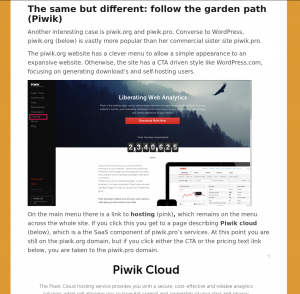
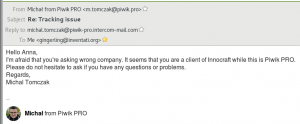
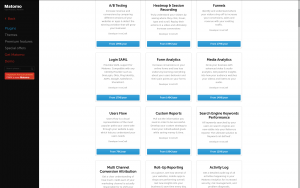
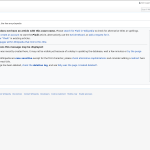
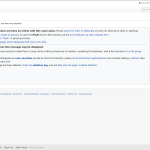
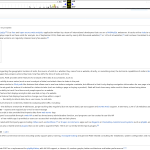
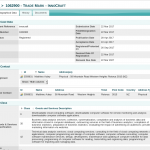
I can only agree. Yes, a fork is sad as it means losing a lot of brand awareness. It took us 18 months to get the equal search volume (see google trends) with the Nextcloud brand and while that means brand awareness is pretty good, it doesn’t always go so quick: it took LibreOffice 5 years (!!!) and of course you still lose people: we’re still not at the level we were before, that might take another year. I’m not sure LibreOffice will EVER gain the mindshare OpenOffice had built up over the decades of its existence.
And I also agree with the Open Core point you make, it is a nasty business model that I think inevitably breaks down. The incentives to screw the open/community part is just too big. It was a major factor for our fork, too – the model wasn’t sustainable. I don’t get why venture capital investors like it so much. Well, maybe I get it, it seems a quick way to an exit, but it sucks if you want to built something that lasts as most open source projects and open source people do.
Prestashop, which runs from France, has one of the worst models I have ever seen. Under French law, according to prestashop, you can’t get a refund for a downloaded product without proof that the product is non functional. So you pay to get access to the code, then you don’t like how it’s written all there are problems with it, and the only way to get your money back is to give the developers admin access to your website so they can take a look around and fix the issue maybe. If you don’t want to give them access to your site, you can’t get your money back! It’s completely bizarre! Also, as a consequence of the model, prestashop has hundreds of plugins to make it work even in a basic way, it’s really hard to fix problems as you never really know where the problem is located, especially as the name of the plug-in in the back end is not the same as the name you see when you dig around using firebug. I can honestly say, open core is the worst for user friendliness. That said, with piwik I can see the need to make some money to keep going and the product is very much functional without these extra plugins. Still, I think it’s wait and see….. Anyway, thanks for your feedback! Xx
Yeah, that sounds particularly nasty. We use Piwik too, it is a great product and yes, we have looked at the plugins a few times. I totally get that they need to make money – if you want to really built a sustainable, successful product, if you’re really ambitious, you need to go beyond volunteer work and donations. And running a company is hard work – you need to balance being nice and earning money. Open Core just makes it TOO easy to NOT be nice, that’s how I see it… If you have a full open source model like we now do, the license keeps you honest.
I mean, really – if I have a choice between paying 5 more developers for Nextcloud with a small proprietary add-on or making the add-on free and getting MAYBE enough income for 1 more developer, is it a surprise that I’d be tempted to go for 5 more people instead of 1? Of course not, all for the good of the project, right? But at the same time, it is a first step on a road to badness. It takes quite some strength to not do that, and if your management team, co-founders and/or investors aren’t 100% behind you, it is going to be super hard if not plain impossible. It is just doomed to go wrong at some point… So better be 100% AGPL and take away the temptation forever.
Another thought – related to the branding – it’s good to put the brand in a separate organization. We promised to do that and we sadly still haven’t gotten around to actually doing it, but we sure will: it is, I think, crucial to protect the long term future of a brand. Any company can go wrong… Right now, we’re still a small-ish team (35 people, is that small?) but how it’s going now, we’ll be double that by the end of this year, if not more. There will be a day that it becomes hard to keep the culture and spirit, and you need some protections. AGPL + a foundation owning the trademark.
NextCloud is going well, my business uses it via GreenNet’s service. It’s a vital bitter software for us 😊 I’d really be interested in some sort of NextCloud version of a NAS also. Looked at Lima for a while which sort of has a Linux version, but not particularly impressive. I prefer NextCloud 😊
Thanks for detailed write up.
I was wondering whey they renamed to “Matomo” while updating my self hosted Piwiki (now Matomo!).